Rising Voices Amazonía grantee project update
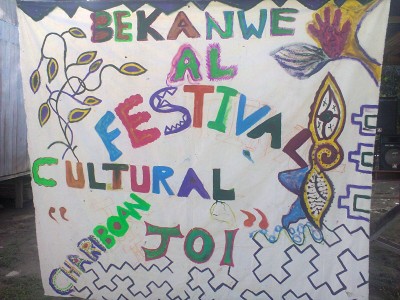
Welcome to Chariboan Joi Festival!
On December 2, 2014 the Shipibo Cultural Festival “Chariboan Joi” (Voices Flying as a Maracana Parrot) was held in the community of Betania in the Peruvian Amazon region, as part of the project with the same name. The aim was to document traditional Shipibo stories and to select a group of Shipibo youth for a training to take place in the city of Yarinacocha how to use mobile phones as a tool for citizen journalism. There they will learn the foundations of journalism, and how to use digital tools and the Internet. The stories will be later translated into Spanish and English and uploaded to the web, as well as be transmitted on some local radio stations.
In the morning, there was a short citizen journalism workshop, with more than 40 high school students of the Shipibo communities of Betania, Alva Castro, Bethel and Palestina. During the theoretical stage, we stressed that the information must be contained in the report, items such as location, date, name of the interviewee and interviewer, and also strategies to establish confidence. The practical stage took place through a tour around the community producing reports.
We weren't all the optimistic when we sent the participants out in the field because it was their first time in citizen journalism, but more to our surprise, they came back with very acceptable reports. They had evidently understood everything very well. Maybe the speed of the workshop made it difficult to break the ice initially with the Chariboan Joi team as well as between the young people from the different communities.
When we were reviewing the reports and the feedback, we already had created a more relaxed environment among the team and among the young people. The friendship was strengthened with an afternoon filled with sporting activity.
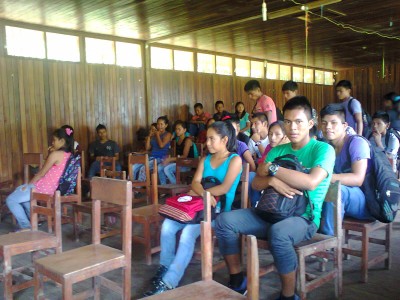
Journalism workshop with young people from four indigenous communities.
We are facing the rainy season with sudden and long rains, but fortunately during the festival we had moderate sunlight. By dusk and during the night, mosquitoes were relentless, so we had to set up some perfume with incense to shoo them away. It all worked very well, until the wind changed direction.
That night, and according to our program, we had some cultural events, such as traditional songs and dances. We also broadcast some of the reports from the morning, the silence and the attention everybody was paying showed us they were all interested by the topics. As they all were in the Shipibo language and I don't understand more than 30 words, a teacher told me they were narrating the establishment of the community. There were occasional laughs, but they preferred to laugh instead of translating the content for me.
As the final and main act, stories were narrated by the elders. We had three recorders prepared, in case one of them failed. When the first speaker came out, after a long introduction, instead of a story he preferred to offer everybody a traditional song named “masha”. “Well,” I thought, “the next one will tell a story,” but it wasn't like that. After taking the microphone, the second speaker sang another masha. The same was with the next one. Worried, I told the fellows from the Organization of Young Indigenous People of Ucayali (OJIRU), who were very calm and smiling, “we have no stories”. “No”, they answered me, “but in the reports of this morning we can find some stories there.” What a relief.
Now, the Shipibo “Chariboan Joi” team, the youth from OJIRU, have the mission of selecting between 10 to 12 of the best reporters from the festival for a 10-day training in Yarinacocha between January and February 2015.
We want to thank Eduardo Avila, Director of Rising Voices, for his visit on November 26 and 27. There he met with representatives from OJIRU and helped them to create their own blog.

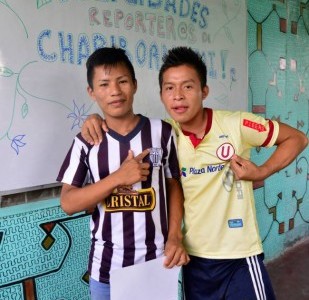
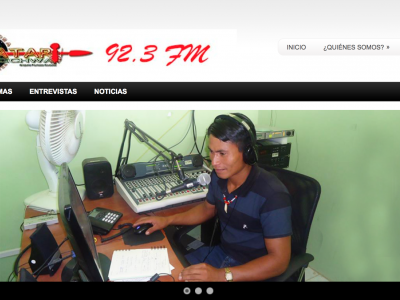
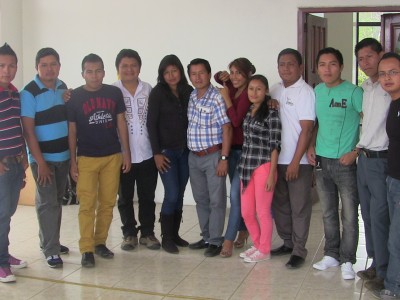
1 comment